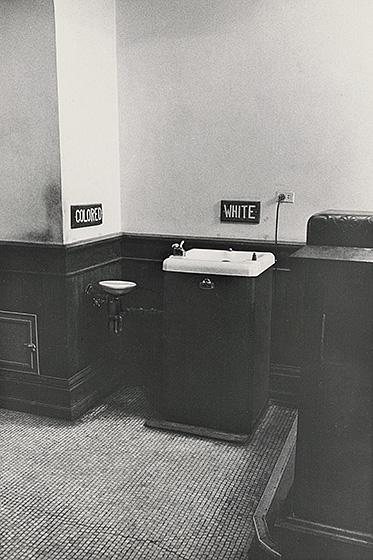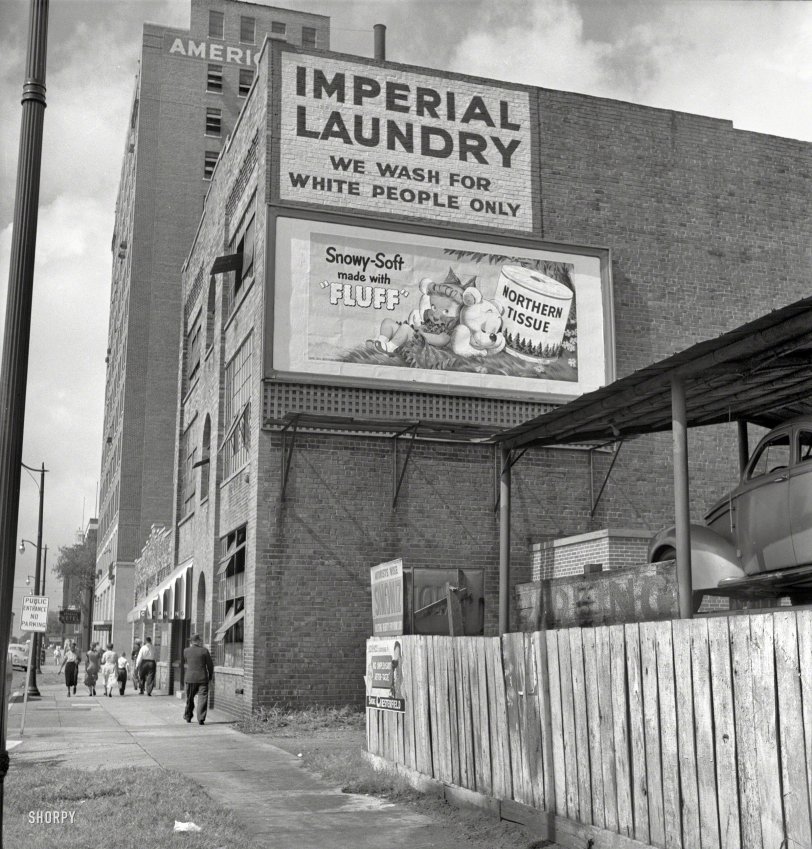Fighting For Miscegenation - How the Loving v. Virginia Case Changed Marriage Laws Across the U.S.
Early Segregation

Danny Lyon, 1962, Segregated Drinking Fountains, National Gallery of Art
Jim Crow laws were the laws in place at the time (until the 1960s) that enforced racial segregation and white supremacy throughout the U.S. They were named after a stereotypical black character in a minstrel show named Jim Crow. Beginning after the Civil War, laws like this were used to deny African Americans rights. At the start of the 1800s, these laws restricted and separated more and more things that African Americans were entitled to, such as restaurants, restrooms, education, and buses. For breaking these laws, there were frequent, sometimes severe, punishments, usually imprisonment.

John Vachon, 1951, "How Far From Slavery?", Look Magazine
The Ku Klux Klan (KKK) was a domestic terrorist organization that discriminated against Catholics, immigrants, and blacks. Founded in late 1865, its mission was to uphold white supremacy in the U.S. The majority of KKK members were white Protestant middle-class men who framed their actions in terms of morality and religion. The Klan was content since Jim Crow Laws protected white supremacy, and its activities significantly reduced.
Before the unanimous decision of the Supreme Court in the case of Brown v. Board of Education on May 17, 1954, segregated public schools were legal in the U.S. Before then, schools that taught colored students received less funding than those that served white students. As a result, white kids received more educational opportunities than students of color.
Bathroom segregation was another instance of early segregation. Often, only white individuals were allowed in the restrooms at gas stations. Public restrooms can be viewed as a basic human right, despite this notion not being widely held. When a person is denied the basic right to use the restroom, it becomes another thing to fight for.
Overall, these laws shaped a society that commended oppression and negative treatment of blacks by whites, portraying African-Americans as inferior. This left a frontier in civil rights for African-Americans that needed to be crossed.
Thesis
Miscegenation in the U.S.